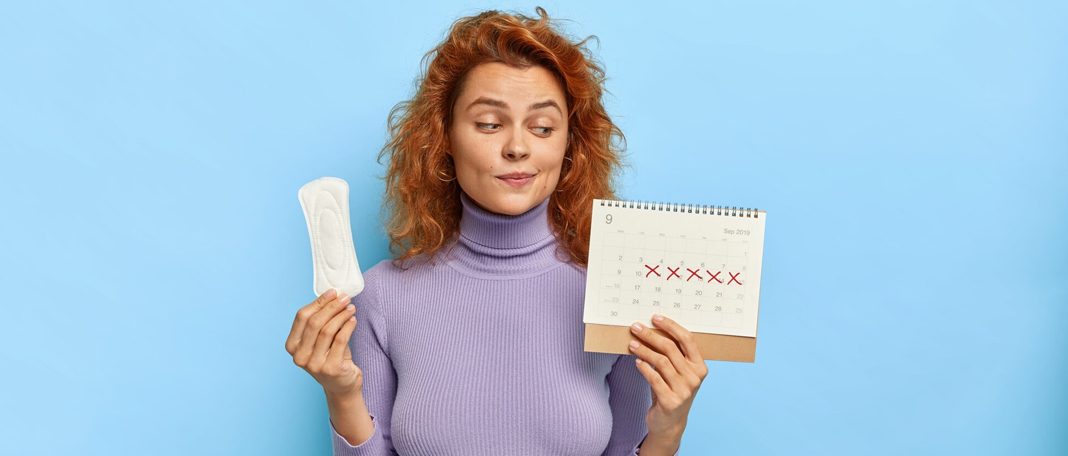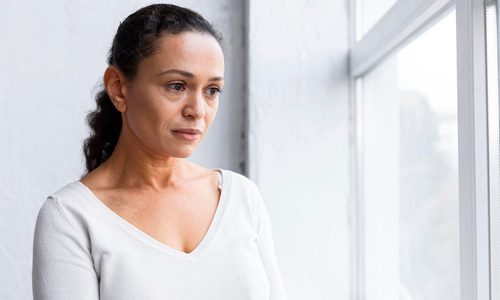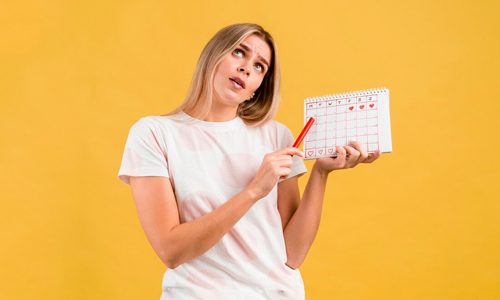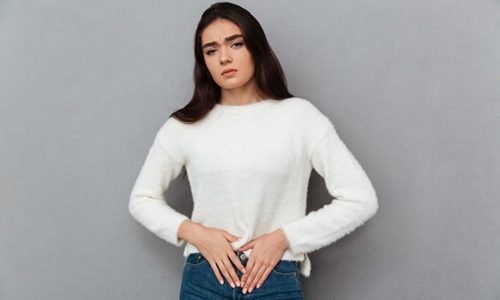Period days may not be the most favorite in a woman’s life, but they are necessary to keep her healthy. From unbearable cramps to changing pads, tampons, or menstrual cups at least 3-6 times a day, the menstrual cycle can be frustrating. But do you know? As you get older, you’ll experience changes in your menstrual cycle. In this blog, let’s see how the menstrual cycle changes with age.
When Do Periods Begin?
Most of the girls have their first period when they are around 12 years old. However, there is no specific age for getting the first period because every girl’s body is different. A girl reaches puberty earlier or later, depending on her genes, lifestyle, and hormonal changes. The age to attain puberty could be anywhere between 10 and 15. Some girls can get cramps during their periods, while others might not. The 5 ways to deal with period cramps will be useful for young girls who have reached puberty.
At What Age Do Periods End?
Just as the age of puberty differs from one girl to another, the time when the periods stop also varies from one woman to another. So, there is no definite answer to “When do women stop their period?”
Does Your Menstrual Cycle Change with Age?
Yes, your menstrual cycle does change with age. You must keep track of your period dates to find out why and how your menstrual cycle changes. Remember the following factors and keep track of them.
- Start date
- End date
- Flow
- Bleeding changes
- Pain
Does Your Period Get Lighter as You Get Older?
In the opinion of several doctors and gynecologists, women may experience slightly lighter and more manageable periods after 40. Women may even skip a period, which is quite common in their 40s.
Now, you have got the answer to your question, “Do your periods change as you get older?”
Periods in Your 20s
Your 20s is the time your body is most prepared to have a baby. For many women, their cycles will be more regular. The average menstrual cycle during this time lasts 28 days, counting from the first day of the first cycle to the first day of the next cycle. Typically, the menstrual cycle will last two to seven days. Many women use birth control or hormonal contraception in their 20s. These pills will trigger changes in blood flow and cramping. But if you ask, “Does your period change in your 20s?” the answer is yes! Based on your dietary changes and stress levels, the occurrence of your periods and their durations may change.
Periods in Your 30s
Many women have the question, “Can your period change as you get older?” in mind. Again, our answer is yes. You might see some changes in your periods when you enter your 30s.
In your 30s, your periods might be a little predictable and consistent. You may face some issues, such as heavy blood flow or intense pain. Childbirth is one major event that arises in your 30s. Many decide to stop birth control during this decade either for personal reasons or to conceive. So you will notice changes in your blood flow. You may also experience an irregular menstrual cycle. Your period gaps might also become shorter to just 25 days (instead of the usual 28 days), which is the first indication of perimenopause. Just as you find changes in your periods during your 30s, you might also experience some menstrual cycle changes after 30. Knowing how fitness affects menstrual health will help women understand the connection between fitness and changes in the menstrual cycle.
Periods in Your 40s
Many women in their 40s face more changes in the menstrual cycle, including perimenopausal hormonal fluctuations. Perimenopause is the stage that happens before your periods stop completely. There are two stages of perimenopause- early perimenopause and late perimenopause.
Many women in their 40s might skip a period or two, but that is definitely not a cause for concern. Period changes at 40 are pretty common. The time when your periods fully stop is called menopause. In the 40s, your periods might happen less often or more frequently. Missing one or two periods is common in your 40s, but it’s not menopause until you go 12 months straight without periods. Some women may experience menopause in their late 40s, whereas many others go through it only in their 50s. Therefore, changes in menstrual cycle after 40 are pretty common.
Weight Loss and Period Changes
Women who lose or gain weight too quickly may face period changes. They might either stop getting their periods or face irregular periods. Get to know how irregular periods cause pregnancy problems. Women with PCOD (Polycystic Ovarian Disease) also tend to face period problems. So, they must consult their doctor or healthcare provider and get treated for the disease. So, if you have the question, “Can your menstrual cycle change suddenly?” in mind, the answer is “yes, it can.”
Why Do Hormonal Changes Occur during Your Menstrual Cycle?
Hormonal changes during your menstrual cycle are common. The menstrual cycle process is controlled by many different glands and by the hormones that the glands produce. There are four phases of the menstrual cycle – menstruation, follicular phase, ovulation, and the luteal phase. Your estrogen levels rise and fall twice during the menstrual cycle.
FAQs
- Does the period cycle change with age?
Yes, your menstrual cycle changes as you age. It occurs due to age-related hormonal changes, and it also varies from woman to woman.
- Does your period change every 10 years?
Yes, your period cycle changes every 10 years due to age-related hormonal changes. Lifestyle, food, and health conditions can also impact your periods.
- Why is my period changing dates every month?
Fluctuations in estrogen levels can cause changes in your menstrual cycle, which in turn result in date changes. Diseases and the medication taken to cure them can also lead to period date changes.
- Why did my cycle change from 28 to 31 days?
Fluctuations in the levels of estrogen, stress, and health conditions/diseases are some factors that cause changes in period dates. So, these are the reasons behind your cycle changing from 28 to 31 days.
























